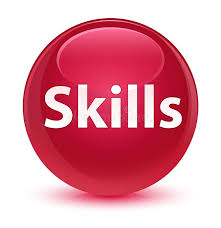The office is no longer the same—and the skills required to succeed there are not. Remote work is no longer a trend; it’s the new norm for businesses globally. As more businesses adopt remote-first or hybrid models, getting the right remote experts is more critical than ever.But remote hiring is different from in-person hiring. It necessitates a profound grasp of the characteristics that mark home-based high performers. If you are an employer seeking to hire to complement your at-home workforce, the following are the most important skills to hire remote workers on—based on those very same characteristics that will determine productivity, communication, and collaboration at your at-home business.
Why Hiring Remote Experts Requires a Different Approach
Remote roles demand a unique blend of soft skills and digital competence. These experts are not just working from home—they’re functioning in a completely different professional environment. Unlike traditional workers, remote professionals must handle communication barriers, manage their time, stay accountable, and deliver consistent results without day-to-day supervision.
Identifying and hiring people who thrive in this setup is crucial. You need candidates who can adapt quickly, solve problems independently, and stay connected with the team digitally. The following top 10 skills are key indicators of a high-performing remote expert.
1. Digital Communication Mastery
Good, clear, and impressive communication is compulsory for successful remote work. Remote teams must be expert in digital communication platforms such as email, Slack, Zoom, and project management tools such as Asana or Trello.
Why it matters: Time wastage is a big hurdle in the remote environment. Miscommunication can create delays, lower trust levels, and reduce efficiency. If these hurdles exist, your business will not grow.
Pro tip: Ask candidates how they will handle communication across different time zones. What they say will reveal whether they have strong remote communication.
2. Time Management and Self-Discipline
With no one watching, remote workers must be able to manage their own time and stay productive without any hurdles.
Why it matters: Work-forward is remote work. Employees skilled in prioritizing, time-blocking, and self-motivated to do are the key elements to get output.
Hiring cue: Bring aboard those who utilize productivity tools such as Notion, Google Calendar, Pomodoro timers, or project boards. Ask them how they manage deadlines and keep themselves accountable.
3. Tech Savviness
Remote employees need to be able to navigate many online platforms—far more than simple email and video calls. They’ll need to learn new platforms easily and debug common technical problems on their own.
Why it matters: Technical problems are inevitable. Technical support no longer will have to be hand-held whenever there is a glitch.
Technical skills to seek: Cloud collaboration software (Google Workspace, Microsoft Teams), password managers (LastPass), remote desktop software, and customer relationship software like HubSpot or Salesforce.
4. Problem Solving and Critical Thinking
Freelancers operate independently and must make solid decisions independently. The power to solve problems, consider alternatives, and apply effective solutions is essential.
Why it’s vital: Freelancers won’t be stopping by a manager’s desk every time a thing breaks. They must be able to think on their feet and fix things with minimal instruction themselves.
Interview tip: Tell them about an example scenario they might encounter in your firm and how they’d deal with it.
5. Adaptability and Flexibility
Offsite life can shift in a flash—project priorities shifting, new technology, or changed work schedules by time zones. The good offsite expert will roll with it and not get caught in the whirlwind.
Why it matters: Resilience is fueled by flexibility. Flexible offsite teams remain on track and productive, even in a moment of rage.
What to watch out for: Experience in remote freelancing, cross-functional teams, or employment in high-energy, dynamic industries are all indicators of adaptability.
6. Self-Motivation and Accountability
Not every worker is comfortable working independently. Remote workers need to be self-motivated, meet deadlines, and produce quality work without frequent checking.
Why it’s required: A self-driven remote expert introduces stability and ownership into work—values that bring long-term achievement.
Assess this skill by: Inquiring about instances where they’ve gone beyond expectations when no one was observing or how they’ve managed extensive projects with little supervision.
7. Team Spirit and Teamwork
Telecommuting is not a one-person job regardless of what people believe. Great teamwork within virtual teams is required. Experts must play an active role in team meetings, group conversations, as well as in important sessions.
Why it matters: Virtual teams succeed when all members contribute ideas, suggestions, and encouragement towards team goals.
Cultural fit also matters: Interview candidates and ask them how they create team culture remotely, such as virtual coffee breaks or virtual team-building events.
8. Cultural and Emotional Intelligence
Remote employees often differ in cultures and continents. Remote experts are sensitive to cultural differences and bring empathy to every interaction.
Why it matters: Trust is supported through emotional intelligence, enhances relationships among team members, and facilitates collaboration among a globally diverse workplace.
Bonus: Recruit experts with some experience working on global teams or client projects with clients of different backgrounds.
9. Organizational and Project Management Skills
Since work is shared over time zones and team members, organization is not a choice. Remote experts need to excel at managing tasks, goals, and deliverables.
Why it matters: Clueless colleagues bring everything to a halt. Brought-together specialists have everything on schedule and deadlines maintained.
What to seek: Excellent skill in using project management tools such as Monday.com, ClickUp, or Jira; excellent skill in conducting remote sprints or retrospectives.
10. Written Communication Skills
Remote work entails a great deal of written communication—emails, instant messages, briefs, and reports. Good, grammatically correct, and organized writing prevents miscommunication and also saves time.
Why it matters: Good writing beats good grammar; it is a marker of clear and professional thought.
Try this skill: Request a sample of writing or give an email writing task with a limited scope. It will also test tone, structure, and clarity.
Why These Skills Matter in the Remote Age
Remote working has transformed the requirements of the job. The perfect remote experts now are no longer just resumes. They are soft skills and hard skills all combined that enable them to work independently but also with others, proactively but communicatively, flexibly but responsibly.
With these leading remote skills, there is less disturbance, higher performance, and a healthier remote culture. Popping open a small virtual team or going global, using the right people can be your company’s remote success story.
Final Thoughts
It’s not about putting someone in a seat—it’s about putting talent in the seat that can produce results independently, work anywhere, and contribute to your remote workforce. By prioritizing first the most significant capabilities listed above, you can create a high-performing, engaged, and resilient remote workforce.
The more businesses adopt the digital workplace, the more businesses that hire brilliance—and remotely—will develop a lasting competitive advantage.
Frequently Asked Questions (FAQs)
What is the most crucial remote-working skill?
The best remote-work skills are effective digital communication, time management, self-control, technical know-how, adaptability, and problem-solving. These skills enable experts to be productive and concentrated in a virtual working environment.
How do I assess a candidate’s remote work potential in an interview?
You can assess remote skills by scenario questions, their familiarity with remote tools, written sample output, and mini test work. Assess for independence, responsibility, and communication clarity.
Why is communication relevant for remote work?
Communication is relevant for remote work since there is no face-to-face personal communication. Clear, respectful, and prompt communication avoids misunderstanding, reinforces coordination, and develops a co-operating team culture.
Can remote skills be trained or learned?
Yes, most remote work skills can be learned with training and practice. Time management software, online collaboration tools, and communication skills could all be learned to enable individuals to excel while working from home.
How do I know if someone is self-motivated?
Watch previous remote work projects, side hustles, or personal accomplishments outside of constant oversight. Ask candidates to explain how they remain well-organized and motivated when working independently outside of traditional supervision.
What should remote experts learn about tools?
Remote experts should learn to use tools like Zoom, Slack, Trello, Asana, Google Workspace, Microsoft Teams, and cloud-based file sharing software. How to use project and task management tools is a bonus as well.
Are technical skills less important than soft skills when hiring remotely?
Both are required but communication, motivation, and adaptability are the type of soft skills that overwhelm technical skills in distance working. A highly competent individual who is a communication or time management disaster may not be able to work efficiently in distance teams.
How does emotional intelligence assist remote teams?
Emotional intelligence enhances cooperation, prevents clashes, and builds trust among virtual teams. Emotional intelligence enhances the responsiveness of the staff towards feedback and respectful communication to multicultural groups of individuals.
Contact Us
Admin@remotexpertsolutions.com






